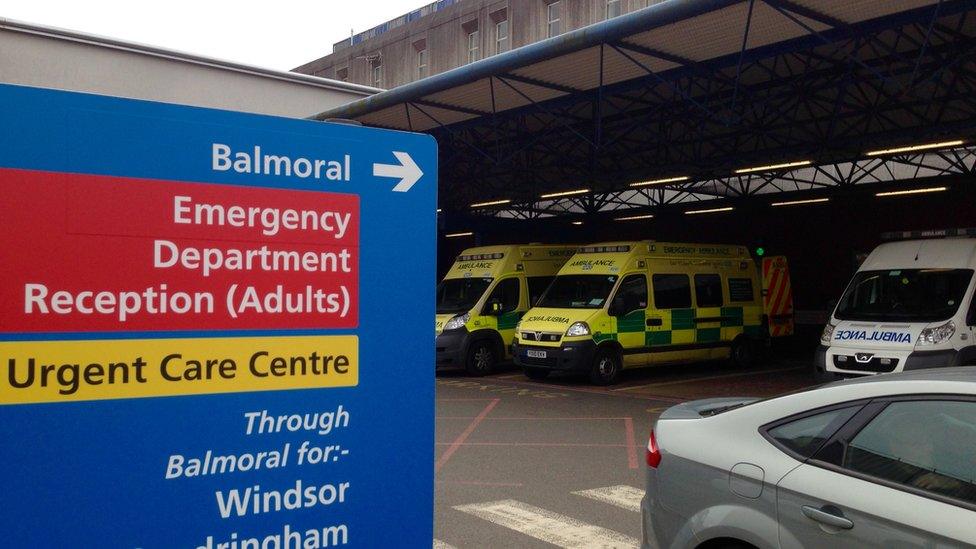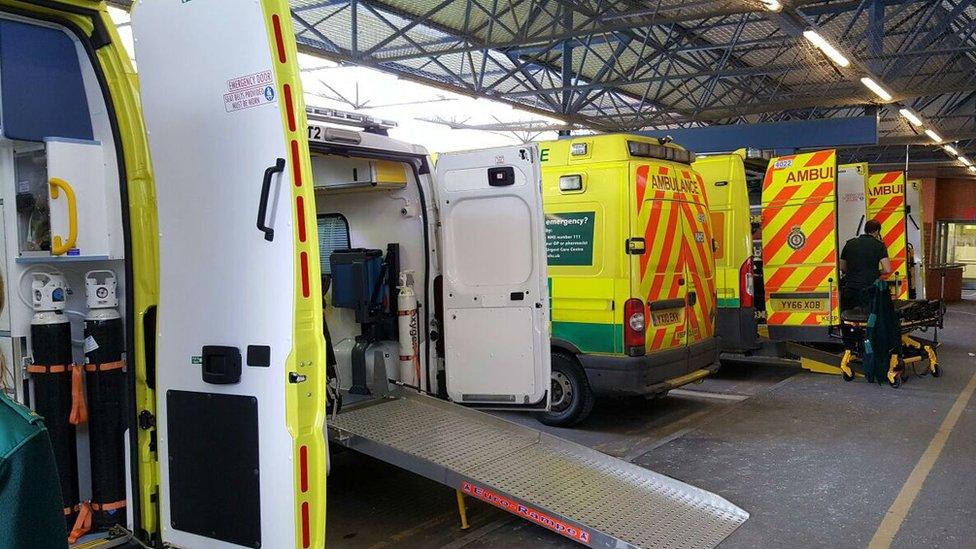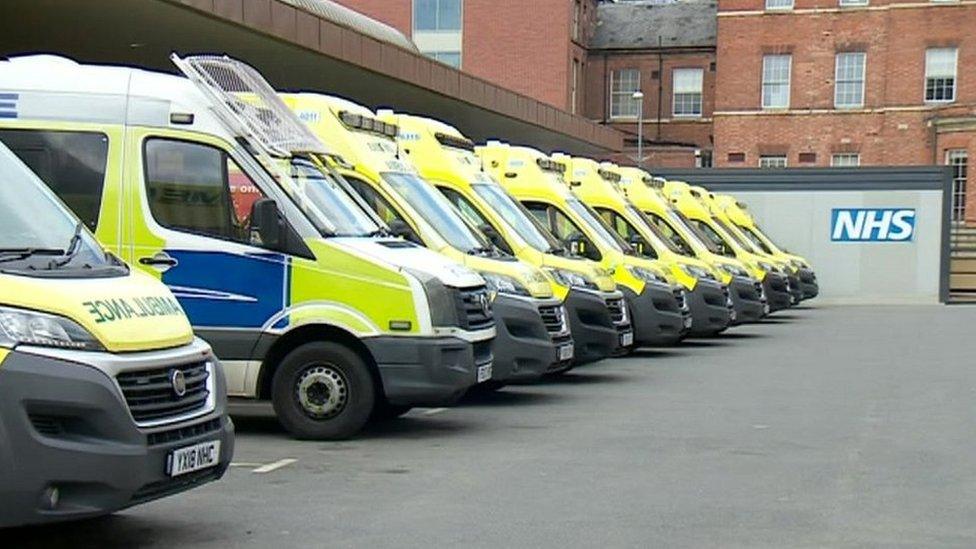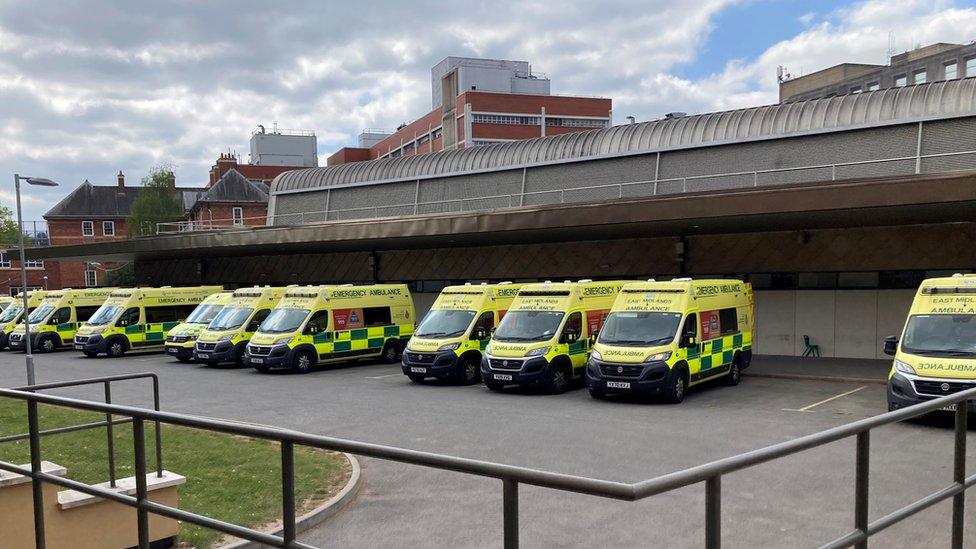Warning over Leicester Royal Infirmary's emergency care
- Published

Health inspectors have issued a warning over Leicester Royal Infirmary's urgent and emergency care.
The Care Quality Commission (CQC) raised concerns about staffing levels, waiting times, as well as delays in treatment and ambulance handovers.
Poor patient flow across health and social care in Leicestershire and Rutland put increasing pressure on the emergency department, it said.
The CQC also issued a warning in 2020 about the hospital's emergency care.
The LRI is run by the University Hospitals of Leicester NHS Trust.
During this year's unannounced inspection in April, inspectors found that beds were not allocated to patients until they had been accepted by specialists, which meant some spent additional time waiting in the emergency department.
At the time, between 45 and 60 beds were needed for new patients.
In addition, some patient transfers to other health facilities in the region stopped at 8pm, restricting flow out of the hospital.
There were also a high number of patients in hospital who were medically fit for discharge but remained in acute services, according to the report, external.
Capacity in community and social care services impacted on the ability of staff to safely discharge patients, but communication issues also caused delays.

Inspectors found that problems with patient handovers delayed 999 responses
In terms of ambulance handover times, inspectors found that poor patient flow across health and social care throughout the region had "further increased the significant pressure on the emergency department".
This resulted in a high number of hours lost to the ambulance service while crews waited outside hospital, and caused further delays in responding to 999 calls to patients in the community with serious conditions.
Both the urgent and emergency care and medical care core services were rated as "requires improvement".
However, the CQC found that hospital managers had the right skills and abilities to run the service, were visible, and supported staff to develop their skills.
It said that staff understood how to protect patients from abuse and worked effectively with other agencies to do so, as well as controlling infection risk well.
In response to the inspection, Claudia Webbe, MP for Leicester East, said: "Like many Leicester residents, I am concerned that the Care Quality Commission (CQC) has found that improvements are needed to ease pressure on emergency care services across Leicester.
"I share the CQC's desire for closer working between the healthcare organisations who deliver care across the county, including sharing risks to ease pressure on key services."
She added: "NHS staff work extremely hard despite often intolerable conditions. The findings of the CQC's report are in no way an indictment of their contribution and dedication but instead a by-product of sustained underfunding and downgrading of our NHS from central government."
A spokesperson for the Department for Health and Social Care said: "Recognising the pressure NHS staff are under, we have provided a £150 million injection to help ambulance services, with the number of ambulance and support staff increasing by almost 40% since February 2010.
"There are now nearly 2,300 call handlers for 999 - an increase of around 500 since September 2021 - and support is being offered to the 35 most challenged hospital sites to reduce delays in handing patients over to hospitals and to get ambulances back on the road."

Follow BBC East Midlands on Facebook, external, Twitter, external, or Instagram, external. Send your story ideas to eastmidsnews@bbc.co.uk, external.
Related topics
- Published11 May 2022

- Published16 June 2022
